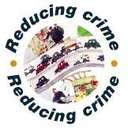
WHAT WORKS
|
‘What Works’ is a generic term used by the National Probation Service to demonstrate that an intervention has been evidenced to be effective. In 1998, certain interventions (such as Think First, ASRO and DIDs) were accredited as a method of demonstrating their effectiveness in reducing offending. Participation of the ‘What Works’ programmes has been shown to cut re-offending by a third. ‘What Works’ is based on the following principles:
The programmes that an offender has to attend are determined by these principles. The Court can sentence an offender to participate in a ‘What Works’ programme as part of a Community Order rather than imposing a custodial sentence. |
|
Why do people continue to commit crimes?
How will these programmes make a difference?
|
![]() Copyright(C) 2007
- 2020. All rights reserved.
Copyright(C) 2007
- 2020. All rights reserved.
![]()
ACCREDITED PROGRAMMES
The Programmes outlined below are run in a variety of different areas, and therefore the information contained therein is a general guide for all those made the subject of an accredited programme. Click on the links below to review each programme in more detail....
- The evidence base which underpins accredited programmes can be read in more detail in the following essay.....
Accessing and Understanding Accredited programmes.
- You can also access further information form the Probation Services' official website at....
http://www.probation.homeoffice.gov.uk

As programmes are developed they are assessed against What Works principles and thoroughly researched. This means that programmes delivered by the Probation Service currently are at various stages of development. These include;
ACCREDITED – Programmes deemed to comply wholly with What Works principles and whose effectiveness has been thoroughly tested through research
RECOGNISED – Programmes nearly ready for accreditation but requiring further research or small adjustments before they can be deemed accredited
PATHFINDER – Programmes that have been developed but are in the process of being tested and evaluated
LEGACY – This means that this is a programme that has not been through the accreditation process.